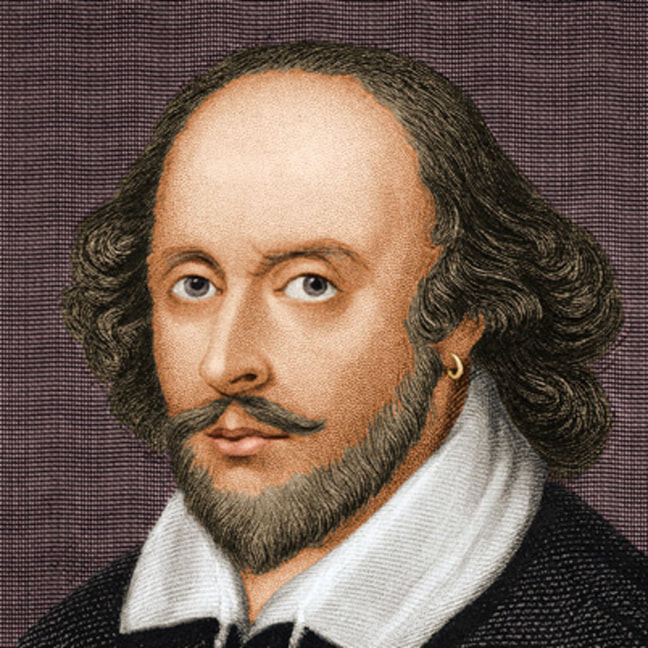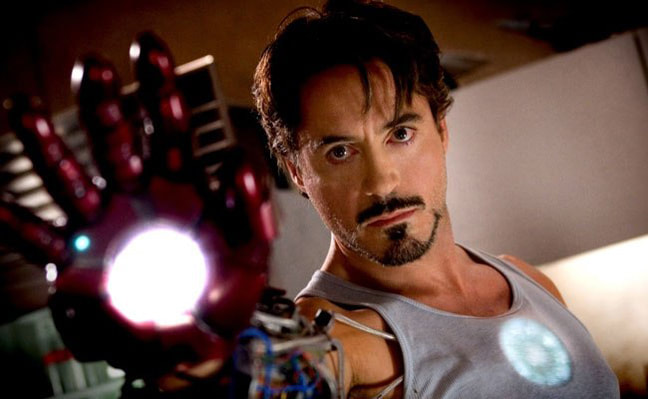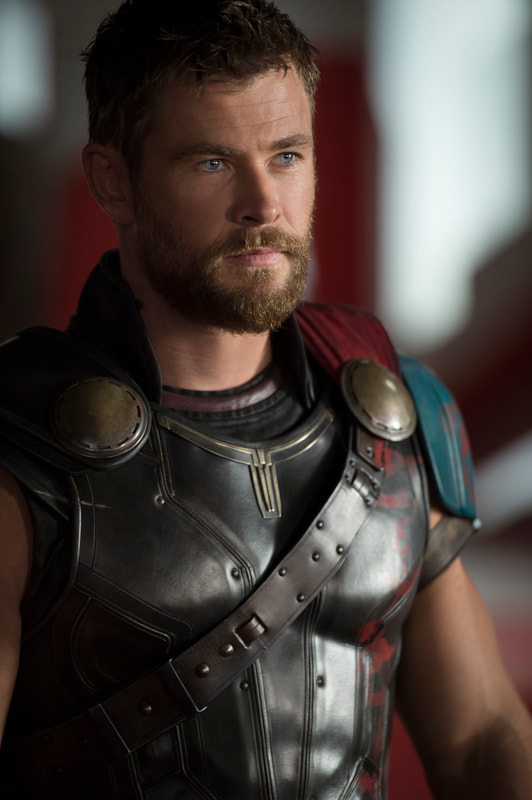Don’t laugh too quickly. A case can be made.
I loved it.
I remember getting home that afternoon and telling my mother all about it. “Shakespeare is FUN! There was this ghost and Hamlet’s uncle killed his father and Hamlet pretended to be crazy and said all these funny things and then he stabbed his girlfriend’s father through a curtain and then she drowned herself and there was swordfighting and dead bodies all over the place!” (Oops, forgot to warn you about spoilers there!)
Sure, over time I learned that there was something more to Hamlet than that, but there is certainly that in Hamlet.
I’ll bet you anything that one of these days a scholar will make the case for the Avengers saga having more to offer than might first meet the eye. In the meantime I’ll offer a few modest thoughts of my own.
Folks tend to forget nowadays that William Shakespeare was first and foremost an entertainer. Yes, you had a few of the intelligentsia of the time attending his plays, but the audience was much more likely to be filled with the lower classes out for fun entertainment. The playwright had to entertain the masses while pleasing the few. His great genius was his ability to do both.
You have complex characters and complicated goings on and world-shaking events, sometimes even apocalyptic, but anybody attending a performance and paying any attention whatsoever could quickly get the basic story. Look at my childish summary of Hamlet. Many of the tales were already known, for Shakespeare did crib his plots from extant works. Sometimes he told the whole story in the prologue, as in Romeo and Juliet.
The plots of the Avengers movies are usually both complicated and simplistic. The action keeps going and the wisecracks keep flying and sometimes you have to make a sort of imaginative leap that what you saw must have made sense, but no matter, you still get the basics.
Shakespeare overlaid his bloody and outlandish and exciting plots with speeches, soliloquys, poetic imagery, and character complications, and as you experience them again and again and unpack their meanings the plays become richer to you. They approach, and often become, art. That very unpacking is what I expect that imagined scholar someday to do with the multi-part saga that I am now considering.
That scholar will know her comic books as well as the craft and the art of movie-making. She will know the various versions of the characters that appear in the comics and will make judgments as to why the Marvel Studios elected to choose or emphasize this one over that. She will be able to analyze the craft involved in the action sequences and the scenes of incredible world-building, and she will be able to sort through new possibilities of a technical nature came along during the course of the work and how they were used.
She will see how important the characters are, especially in their interactions with one another, and how important the casting of those characters turned out to be. It is those characters and their histories and those actors embodying them that make the end of Avengers: Endgame so moving. And Avengers: Infinity War before that.
Shakespeare lived in a time when there was great rift in the English society between Catholics and Protestants and great concern about the proper transfer of power from one monarch to his or her successor and what made a good ruler. He was fascinated by what was going on but did not dare address it too directly. He pushed it back in time. Once upon a time there was a ruler in Denmark who was murdered by his brother. There was a king who had three daughters, and he desired for them to prove how much they loved him so that he could divide his kingdom among them. He invented fairylands: Once Titania and Oberon ruled over their separate kingdoms in the woods outside of Athens. Once upon a time a ship is wrecked off a mysterious island where dwelled the sorcerer Prospero, the rightful ruler of Milan, and his daughter Miranda.
What an unbelievable setup that is in Lear! What an incredible coincidence that the wrecked boat in The Tempest would be carrying the man who deposed Prospero and various accomplices and his son! For me, the use of the unbelievable and the coincidental in the Avengers movies is no deterrent to my enjoyment or appreciation. I’m used to that because of Shakespeare.
The structure of the theater in which Shakespeare presented his plays allowed enormous flexibility in staging without the need for complex set changes so that the flow was almost what we today might call cinematic. Not a lot of complicated sets at all, and in lieu of that you would get his language:
That very time I saw, but thou couldst not,
Flying between the cold moon and the earth,
Cupid all arm'd: a certain aim he took
At a fair vestal throned by the west,
And loosed his love-shaft smartly from his bow,
As it should pierce a hundred thousand hearts;
But I might see young Cupid's fiery shaft
Quench'd in the chaste beams of the watery moon,
And the imperial votaress passed on,
In maiden meditation, fancy-free.
Yet mark'd I where the bolt of Cupid fell:
It fell upon a little western flower,
Before milk-white, now purple with love's wound,
And maidens call it love-in-idleness . . .
If this were a Marvel movie we would see all this, of course, and I am not one to say that the visual approach is necessarily any less than the Shakespeare and his poetic language.
So not a lot of fancy sets on Shakespeare’s stage, but we do get the costumes and the drapes and above all the swordfights and stabbings and big battle scenes. (Lots of suggestive talk, too.) Reading the plays you might miss al the physical excitement. There’s this stage direction: “LAERTES wounds HAMLET; then in scuffling, they change rapiers, and HAMLET wounds LAERTES.” On stage and screen this is milked for all the action and suspense possible. Think of the last saber battle between Darth Vader and Obi-Wan Kenobi. Consider possibly the most famous stage direction in Shakespeare: “Exit, pursued by a bear.” Seems abrupt, but don’t you just know that on stage that actor in bear costume had been lurking about and sniffing around, and then he gets up on hind legs an growls, with Antigonus cowering in fright and screaming before he runs offstage to his doom. And no fancy language, or language at all, in this sequence that follows the last long speech of Antigonus.
Don’t knock the big action sequences in the Avengers’ movies! In the screenplays they are probably described as “They fight” or “Insert big battle” or “Spaceships collide.” But those making the movies did just what Shakespeare did: make it big!
To me the most inspired choice of directors in the earlier movies was the selection of Kenneth Branagh for “Thor.” Branagh has his Shakespeare creds: he’s acted in many of the plays and directed several on stage and screen. All types: comedies, histories, tragedies. I don’t know whether he was chosen because of his Shakespeare experience or simply brought that to the mix, but it worked. There are lots of big speeches and pontification in “Thor,” and the director makes them work. There is heavy serious stuff and seriously funny stuff, and just like in Shakespeare you have to know how to balance all those and make them work in the same production. Too, you get the great big action stuff and the small and telling character bits, just as in Shakespeare. I think Branagh did manage to achieve that balance in a way that improved the series.
Although Tony Stark gets most of the best lines, for me Thor is the greatest comic creation in the Avenger movies. His self-awareness of his beauty and his physical strength balanced with his total obliviousness to so much of his surroundings is greatly comic. Chris Hemsworth and Branagh working together created a wonderful character and, I believe, helped set up the way in which the serious and the comic intermingle in the later movies.
And in the same movie and subsequent ones you get the comic villain Loki, portrayed by Tom Hiddleston, another great-looking actor in a different key than Hemsworth. I was delighted by characterizations of both Thor and Loki, but not until this past year when I read Neil Gaiman’s wonderful “Norse Mythology” did I realize how accurate those conceptions and portrayals are.
Anthony Hopkins as Odin is perfectly Shakespearean and concept and execution. And then there is the great villain Thanos (wonderful name) motion-captured wonderfully by Josh Brolin. That moment when he snaps his fingers toward the end of Infinity War and half the life in the universe is extinguished (including that of half the heroes) is a great moment worthy of Shakespeare. Thanos talks a lot and explains his actions, as do heroes in Shakespeare, and he becomes an incredibly sympathetic villain. And that, as in Shakespeare, does not rob him of his villainy.
You don’t have to like Shakespeare to enjoy the Avengers saga, and you don’t have to like those to enjoy Shakespeare. But, I find, it is possible to enjoy both. I like high art and I like low art. Both appear in Shakespeare. Both appear in The Avengers.




 RSS Feed
RSS Feed